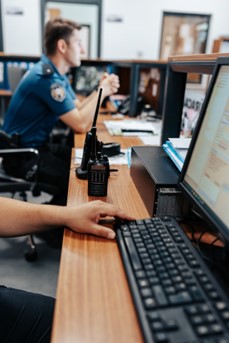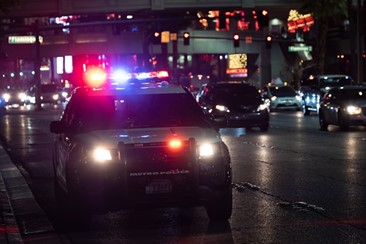James Vafeades of Long Island works as a law enforcement professional. In the following article, James Vafeades explores the multifaceted role of police unions, examining their influence on policymaking, officer rights, and their broader implications for society.
Police unions play a significant role in shaping law enforcement practices, policies, and the rights of officers across the United States. Their influence extends beyond advocating for fair wages and benefits to impacting how police departments operate, the rights officers enjoy, and how the public perceives law enforcement.
James Vafeades Discusses Influence on Policymaking
Police unions are organizations that represent law enforcement officers in negotiations with employers (typically government entities like cities or counties) over wages, benefits, working conditions, and disciplinary procedures. They serve as collective bargaining units aimed at protecting the interests and rights of their members, which include patrol officers, detectives, and other law enforcement personnel.
- Collective Bargaining Agreements: Police unions negotiate contracts with local governments that outline terms of employment, including salaries, benefits, hours, and working conditions. These agreements can have significant financial implications for municipalities and shape departmental policies related to staffing, training, and equipment procurement.
- Disciplinary Procedures: Police unions often advocate for due process rights for officers facing disciplinary action, including grievances, appeals, and arbitration processes. They influence policies regarding officer misconduct investigations, disciplinary penalties, and reinstatement procedures.
- Use of Force Policies: James Vafeades explains that union negotiations can influence use of force policies by advocating for guidelines that prioritize officer safety while addressing community concerns about excessive force. This can impact public trust and departmental transparency.
Officer Rights and Protections
- Legal Representation: Police unions provide legal representation and support for officers involved in on-duty incidents, criminal investigations, and civil lawsuits. They ensure officers have access to fair treatment and legal counsel throughout legal proceedings.
- Workplace Safety: Unions advocate for measures to enhance officer safety, including training, equipment upgrades, and protocols for handling dangerous situations. They also negotiate provisions related to staffing levels and shift schedules that impact officer well-being.
- Benefits and Retirement: Negotiations over benefits such as healthcare, pensions, and retirement plans are central to union activities. These benefits are crucial for attracting and retaining qualified officers and ensuring their long-term financial security.
Public Perceptions and Community Relations
- Impact on Public Trust: The influence of police unions on disciplinary processes and use of force policies can shape public perceptions of law enforcement. Transparency in union negotiations and outcomes can affect community trust and confidence in policing practices.
- Community Policing Initiatives: Unions may support or oppose community policing efforts depending on their impact on officer workload, safety, and job satisfaction. Collaborative efforts between unions and communities can enhance trust and improve public safety outcomes.
- Political Advocacy: Police unions engage in political advocacy to influence legislation and public policies that impact law enforcement. James Vafeades says that they endorse candidates for political office and lobby for laws that align with their members’ interests and priorities.
Challenges
- Accountability: Critics argue that police unions sometimes prioritize protecting officers accused of misconduct over accountability and transparency. James Vafeades of Long Island notes that this can strain community relations and undermine efforts to reform law enforcement practices.
- Negotiating Power: The bargaining power of police unions can lead to contracts that critics view as overly favorable to officers, potentially hindering efforts to implement reforms or address systemic issues within police departments.
- Balancing Rights and Responsibilities: Balancing the rights of officers with the need for accountability and public safety remains a challenge. Striking this balance requires ongoing dialogue between unions, law enforcement agencies, elected officials, and community stakeholders.
 Future Directions and Reforms
Future Directions and Reforms
- Transparency and Accountability: Calls for greater transparency in union negotiations and disciplinary processes aim to build trust and accountability. Reform efforts seek to ensure that union agreements promote both officer rights and public safety.
- Training and Professional Standards: Emphasizing training in de-escalation techniques, cultural competence, and ethical standards can enhance officer professionalism and community relations. Unions play a role in advocating for comprehensive training programs.
- Community Engagement: James Vafeades of Long Island explains that strengthening relationships between police unions and the communities they serve through outreach, dialogue, and collaborative initiatives can foster mutual understanding and support for law enforcement efforts.
Conclusion
Police unions play a pivotal role in advocating for the rights, protections, and interests of law enforcement officers. Their influence extends to policymaking, disciplinary procedures, and public perceptions of law enforcement practices. While they provide essential support and representation for officers, they also face challenges related to accountability, transparency, and balancing officer rights with community expectations. Moving forward, James Vafeades of Long Island concludes that fostering constructive dialogue and implementing reforms that prioritize accountability and public trust will be crucial for ensuring effective, fair, and responsive policing in communities across the nation.








